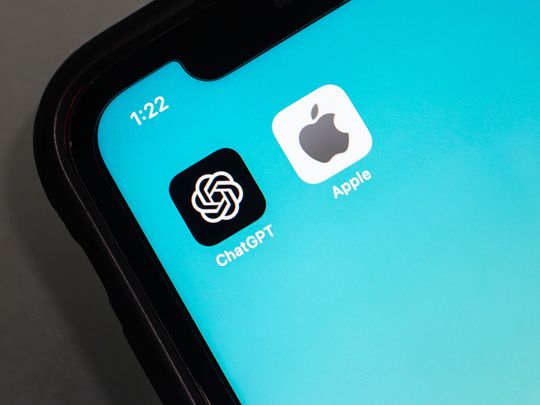
Apple’s announcement at its Worldwide Developers Conference (WWDC) about integrating artificial intelligence (AI) into its products and partnering with ChatGPT-maker OpenAI has generated significant excitement and a fair share of questions.
This dual approach — launching its proprietary AI suite while also incorporating ChatGPT — raises important issues regarding privacy, security, and the future of AI in Apple’s ecosystem.
The stakes are high for Apple, a company renowned for its commitment to privacy and security. The partnership with OpenAI, which brings ChatGPT to Apple’s devices and software, presents a unique blend of opportunities and challenges.
Apple’s AI capabilities promise significant improvements in user interactions. AI-driven transcription for phone calls, photo retouching, and more natural conversation flows with Siri are just a few examples of how AI can enhance everyday tasks. Generative AI will also help summarise notifications, text messages, articles, documents, and web pages, making information more accessible and manageable.
How we interact with technology
This collaboration represents a significant leap forward in integrating advanced AI within consumer technology. It also sets a new standard for what users can expect from their devices, potentially revolutionising how we interact with technology.
By incorporating OpenAI’s technology, Apple can maintain its competitive edge in the rapidly evolving AI landscape. This partnership could position Apple as a leader in AI integration within consumer products, attracting tech-savvy consumers and AI enthusiasts.
However, one of the primary concerns is the handling of personal data. Apple’s reputation for privacy is on the line as it navigates the complexities of integrating AI that relies on vast amounts of user data. Critics like Elon Musk have raised alarms about the potential security risks, arguing that Apple may not fully understand the implications of handing over user data to OpenAI.
A reputation for privacy
The partnership also raises questions about the economic viability and long-term benefits for both companies. Without financial transactions between Apple and OpenAI for user queries and distribution, the mutual benefits of this collaboration remain unclear. Additionally, any misstep in data handling or AI performance could damage Apple’s hard-earned reputation for security and privacy.
As highlighted by Apple co-founder Steve Wozniak, the ultimate test of AI’s success lies in its real-world application and user satisfaction. There is a risk that the technology might not meet user expectations, leading to disillusionment and resistance.
Apple’s bold move to integrate AI into its ecosystem through a partnership with OpenAI represents both a thrilling advancement and a considerable gamble. While the potential for enhanced user experiences and technological leadership is significant, the challenges related to privacy, security, and economic viability cannot be overlooked.
As Apple ventures into this new frontier, the tech behemoth must carefully navigate these issues to maintain trust and deliver on its promise of innovation.
Ahmad Nazir is a UAE based freelance writer








